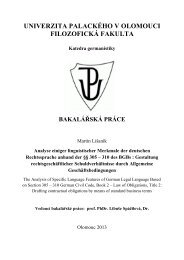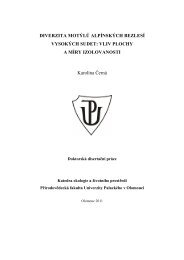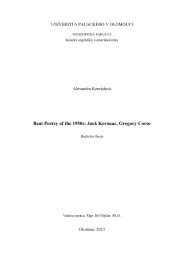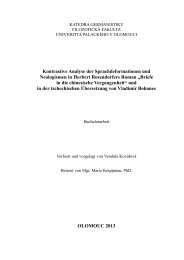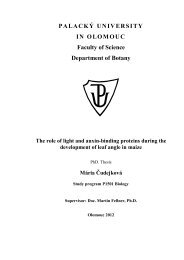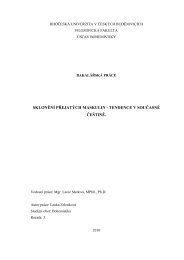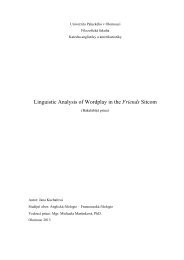Create successful ePaper yourself
Turn your PDF publications into a flip-book with our unique Google optimized e-Paper software.
passione» 260 . Ciò che si può cogliere da vari accenni già prima del c. 10, è<br />
ora espresso da Gesù esplicitamente 261 . Nella passione e morte di Gesù nei<br />
cc. 18-19 si farà carne la sua parola pronunciata nell’ultimo giorno della<br />
festa delle Capanne. Allora Gesù darà effettivamente la sua vita per le<br />
pecore. La darà da se stesso, perché nessuno gliela può togliere. La scena<br />
della cattura lo evidenzia chiaramente: Gesù si consegna liberamente alle<br />
mani dei soldati, proteggendo i suoi come il Buon Pastore (18,4-9). Non è<br />
l’evxousi,a di Pilato che decide il destino di Gesù processato e se è Pilato che<br />
effettivamente manderà Gesù a morte, lo fa in quanto strumento della<br />
potenza dall’alto (19,11). Gesù non è trascinato, ma va da sé al Golgota<br />
(19,17).<br />
Se leggiamo, sullo sfondo di tutto il Quarto Vangelo, l’affermazione di<br />
Gesù di dare la vita da sé possiamo avvertire una certa tensione tra avp’<br />
evmautou/ di 10,17 e tante espressioni della sua sottomissione al Padre e della<br />
dipendenza da Lui 262 . Secondo Ignace de la Potterie si tratta della libertà nei<br />
confronti degli uomini, non di Dio 263 . Ma non bisogna nemmeno opporre la<br />
sottomissione di Gesù al Padre alla sua libertà. Se Gesù dà la sua vita da sé e<br />
non gliela tolgono gli uomini, allora questo non significa che il Padre lo<br />
costringa o che gli strappi la vita dalle mani. Gli ha dato di avere la vita in se<br />
260 C.H. DODD, The interpretation of the Fourth Gospel, 360: «This provides the<br />
evangelist with the clearest and most explicit statement he has yet permitted himself upon<br />
the Passion of Christ as a voluntary and vicarious self-sacrifice» (trad. it.<br />
L’Interpretazione del Quarto Vangelo, 441-442).<br />
261 C.H. DODD, The interpretation of the Fourth Gospel, 360: «Christ will die as a<br />
result of His conflict with the rulers of Israel, but the hint given in 6,51 that His death is<br />
voluntary and vicarious was not carried further. In the discourse of 10,1-18 it is taken up<br />
and developed, on the basis of the illuminating image of the heroic shepherd. Life eternal,<br />
as the reader had known since ch. 3, is the gift of Christ, and since ch. 6 he has been led<br />
to surmise that Christ gives life, in some sense, by giving Himself. Now the idea begins<br />
to assume concrete shape. Christ is actually going to be killed in His conflict with false<br />
rulers, and through His death He will bring life to others, as really as a shepherd might<br />
save the lives of his sheep by fighting the wolf at the cost of his own life. If that does not<br />
tell the whole story, at least it gives part of the answer to the unanswered question of<br />
6,52: “How can this man give us his flesh to eat?”».<br />
262 Cf. 5,19.30; 6,38.57; 7,16; 8,26.28.40.42; 9,32 ecc.<br />
263 I. DE LA POTTERIE, «Il Buon Pastore», 108: «Quando Gesù, come qui, afferma con<br />
forza che si tratta di lui stesso, pensa ai suoi rapporti con gli uomini e vuol escludere che<br />
essi possano imporgli la loro volontà; ma quando altrove dice che non fa nulla da sé, è<br />
unicamente in rapporto a Dio. L’assoluta libertà di Gesù nei confronti degli uomini non<br />
contraddice affatto la sua perfetta sottomissione nei confronti del Padre... “Quel che in<br />
rapporto agli uomini è libertà, è obbedienza in rapporto al Padre” (A. Schalter), perché il<br />
sommo potere di agire liberamente che possiede Gesù è a sua volta un dono del Padre».<br />
140



